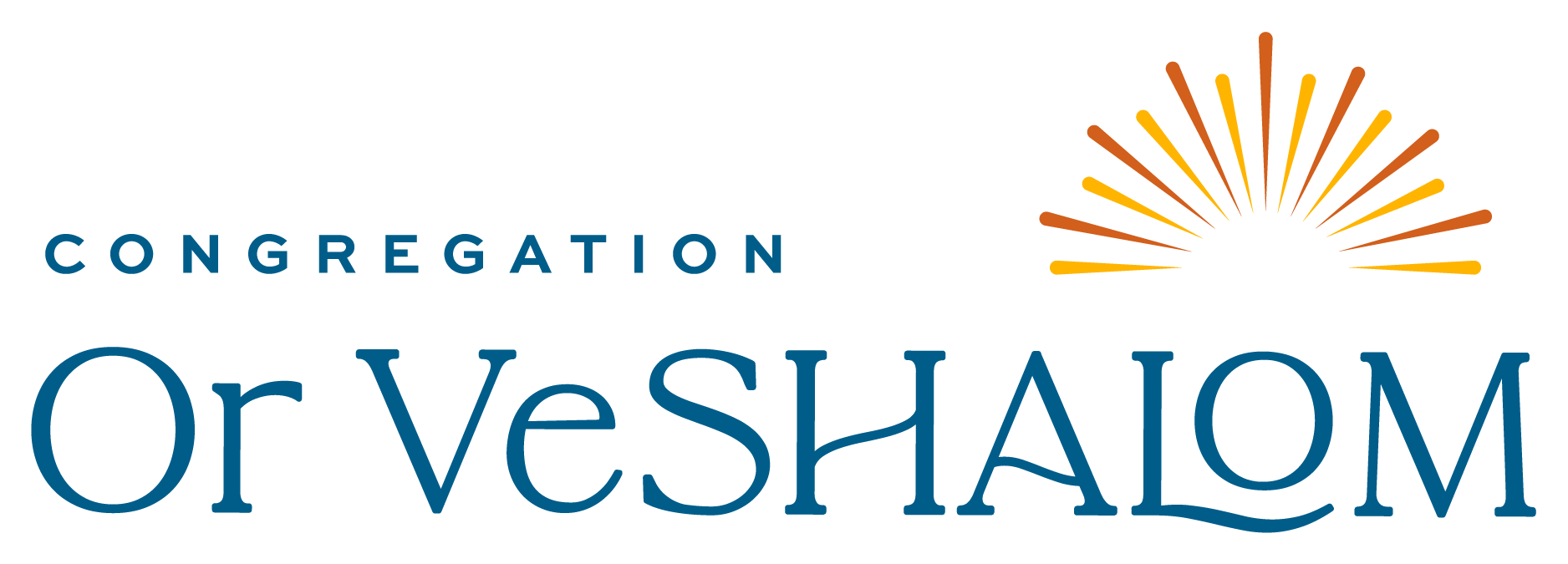Rabbi Hearshen
What does it mean to be a good person? When we look in the mirror do we see within ourselves goodness or something that gives us pause and hurt? When we are lying in our beds at night and reviewing our days do we feel good about the choices we’ve made, the actions we’ve taken and the words we’ve said? These are all questions that matter. It matters that, as caring and thinking people, we are reflective and able to see where adjustments can and need to be made. We need to be able to steer our own ships and find the times when we need to change course and/or take a different approach. That’s the entire purpose of this time of the year, אלול/Elul, the last month of the year and the month we’re currently in. It’s given to us to spend more intense time looking at our lives and seeing what we have become and figuring out what we want to become. The High Holidays are a gift given to us to have a dedicated time looking at ourselves, our families, our friends, our community, our people and our world to see where things are great and to recognize where we need a new approach and a change.
The word מצוה/mitzvah means commandment. That’s its core and basic meaning. We, as Jews, understand God gave us a gift of 613 commandments to connect with God and to make our world more meaningful and better. We often, mistakenly, assert the word מצוה means good deed. I’ve been arguing against this for quite some time. To put it in plain and simple language, all/most מצות/Mitzvot are good deeds but not all good deeds are necessarily מצות. You know all squares are rectangles but not all rectangles are squares. It’s the same thing. The reason for this necessary differentiation or distinction is that we need to recognize that, as Jews, we’re obligated to act and behave in a certain way with a uniquely Jewish approach. When we see the actions we perform in their Jewish context, we see our lives as a relationship with God. There’s nothing uniquely Jewish about being a good person. Christians, Muslims, Hindus and all other people have the capacity and ability to be good people. What’s unique about Jews is we have a system in which we live that commands of us a certain set of behaviors, and when we live in such a way, we truly elevate God’s name and place in this world.
פרשת כי תצא/Parshat Ki Tetze is packed with laws about how we live our daily lives. There are numerous rules about marriages, about parenting, about lost objects, and kindness to animals among many other things. The power of our words, and the need for us to be faithful to our vows, is also in this week’s פרשה. One of the מצות that really drives home our value and mission to be good people is found in 24:10 – 15:
כִּֽי־תַשֶּׁ֥ה בְרֵֽעֲךָ֖ מַשַּׁ֣את מְא֑וּמָה לֹא־תָבֹ֥א אֶל־בֵּית֖וֹ לַעֲבֹ֥ט עֲבֹטֽוֹ׃
בַּח֖וּץ תַּעֲמֹ֑ד וְהָאִ֗ישׁ אֲשֶׁ֤ר אַתָּה֙ נֹשֶׁ֣ה ב֔וֹ יוֹצִ֥יא אֵלֶ֛יךָ אֶֽת־הַעֲב֖וֹט הַחֽוּצָה׃
וְאִם־אִ֥ישׁ עָנִ֖י ה֑וּא לֹ֥א תִשְׁכַּ֖ב בַּעֲבֹטֽוֹ׃
הָשֵׁב֩ תָּשִׁ֨יב ל֤וֹ אֶֽת־הַעֲבוֹט֙ כְּב֣וֹא הַשֶּׁ֔מֶשׁ וְשָׁכַ֥ב בְּשַׂלְמָת֖וֹ וּבֵֽרְכֶ֑ךָּ וּלְךָ֙ תִּהְיֶ֣ה צְדָקָ֔ה לִפְנֵ֖י יְהֹוָ֥ה אֱלֹהֶֽיךָ׃ {ס}
לֹא־תַעֲשֹׁ֥ק שָׂכִ֖יר עָנִ֣י וְאֶבְי֑וֹן מֵאַחֶ֕יךָ א֧וֹ מִגֵּרְךָ֛ אֲשֶׁ֥ר בְּאַרְצְךָ֖ בִּשְׁעָרֶֽיךָ׃
בְּיוֹמוֹ֩ תִתֵּ֨ן שְׂכָר֜וֹ וְֽלֹא־תָב֧וֹא עָלָ֣יו הַשֶּׁ֗מֶשׁ כִּ֤י עָנִי֙ ה֔וּא וְאֵלָ֕יו ה֥וּא נֹשֵׂ֖א אֶת־נַפְשׁ֑וֹ וְלֹֽא־יִקְרָ֤א עָלֶ֙יךָ֙ אֶל־יְהֹוָ֔ה וְהָיָ֥ה בְךָ֖ חֵֽטְא׃
When you make a loan of any sort to your compatriot, you must not enter the house to seize the pledge.
You must remain outside, while the party to whom you made the loan brings the pledge out to you.
If that party is needy, you shall not go to sleep in that pledge;
You must return the pledge at sundown, that its owner may sleep in the cloth and bless you; and it will be to your merit before your God יהוה.
You shall not abuse a needy and destitute laborer, whether a fellow Israelite or a stranger in one of the communities of your land.
You must pay out the wages due on the same day, before the sun sets, for the worker is needy and urgently depends on it; else a cry to יהוה will be issued against you and you will incur guilt.
Look at the whole institution of loans and the idea of collateral. We must wait outside for the person to bring the item to us. We cannot keep the pledge overnight because the person needs that item. This isn’t how we see the world today. We don’t worry enough about those who haven’t been blessed in the ways we’ve been blessed. We don’t think about the implications our actions will have on the people around us. When we see this core מצוה and value in our text, it demands we not only adhere to this, but to look deeper and try to see how a rule of this sort would impact our lives. This law exists because it’s very easy to overlook the pain and hurt another person is in when we have power. It’s very easy not be concerned about their situation because we’re already being a good enough person in that we’re helping them. But we need to push ourselves to be better than this. We need to look at those around us who struggle and see what we can do to ease their burdens. We need to look at those around us and not see them as stepping stones for us to climb to greater levels of wealth and stature. We must see that the world we live in is filled with people who need each other and we need to do our part to be there when we’re the ones who are needed.

